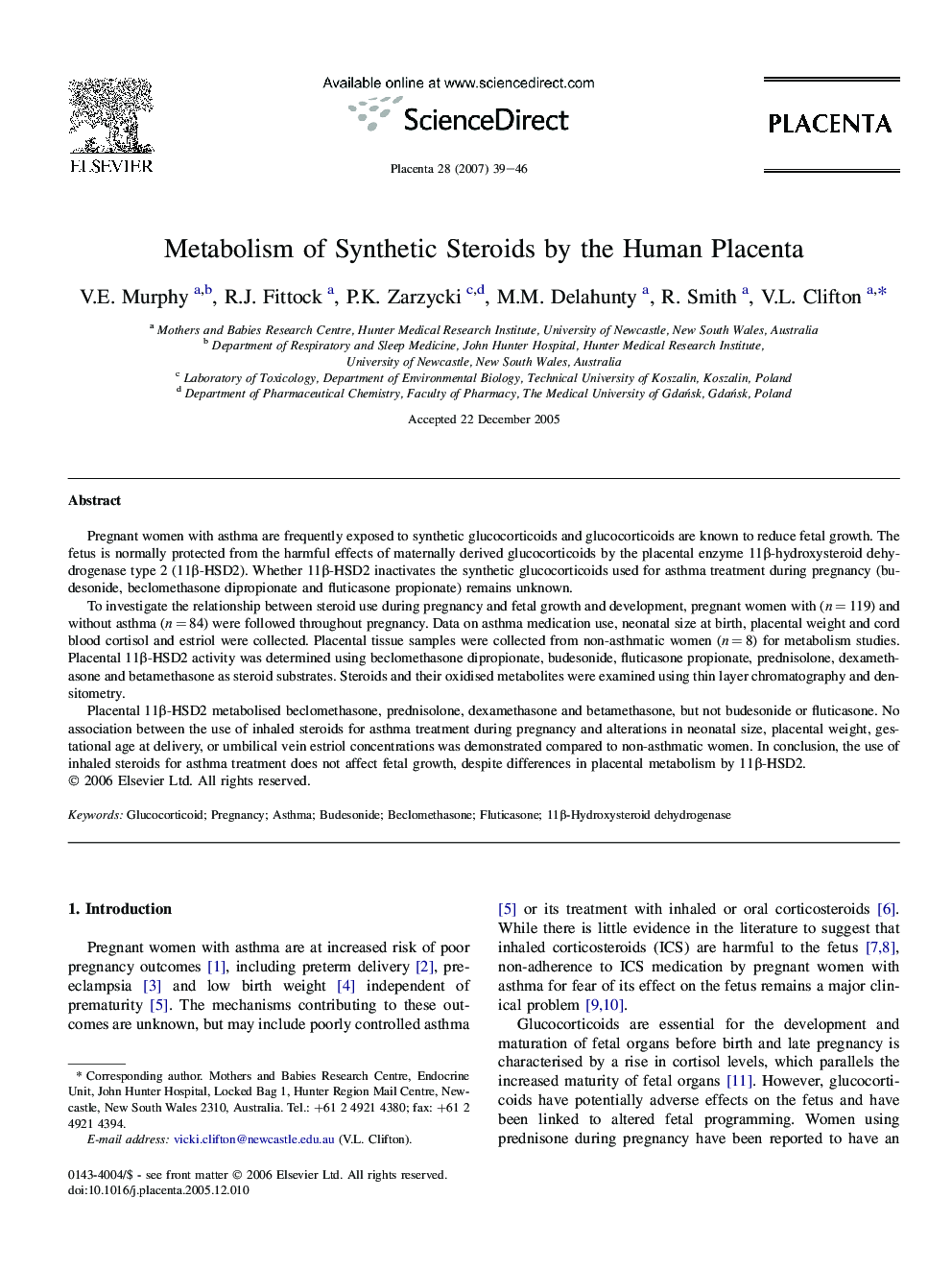| Article ID | Journal | Published Year | Pages | File Type |
|---|---|---|---|---|
| 2790203 | Placenta | 2007 | 8 Pages |
Pregnant women with asthma are frequently exposed to synthetic glucocorticoids and glucocorticoids are known to reduce fetal growth. The fetus is normally protected from the harmful effects of maternally derived glucocorticoids by the placental enzyme 11β-hydroxysteroid dehydrogenase type 2 (11β-HSD2). Whether 11β-HSD2 inactivates the synthetic glucocorticoids used for asthma treatment during pregnancy (budesonide, beclomethasone dipropionate and fluticasone propionate) remains unknown.To investigate the relationship between steroid use during pregnancy and fetal growth and development, pregnant women with (n = 119) and without asthma (n = 84) were followed throughout pregnancy. Data on asthma medication use, neonatal size at birth, placental weight and cord blood cortisol and estriol were collected. Placental tissue samples were collected from non-asthmatic women (n = 8) for metabolism studies. Placental 11β-HSD2 activity was determined using beclomethasone dipropionate, budesonide, fluticasone propionate, prednisolone, dexamethasone and betamethasone as steroid substrates. Steroids and their oxidised metabolites were examined using thin layer chromatography and densitometry.Placental 11β-HSD2 metabolised beclomethasone, prednisolone, dexamethasone and betamethasone, but not budesonide or fluticasone. No association between the use of inhaled steroids for asthma treatment during pregnancy and alterations in neonatal size, placental weight, gestational age at delivery, or umbilical vein estriol concentrations was demonstrated compared to non-asthmatic women. In conclusion, the use of inhaled steroids for asthma treatment does not affect fetal growth, despite differences in placental metabolism by 11β-HSD2.
